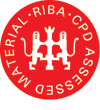The Government has mandated that all construction companies tendering for Government work should achieve "Level 2" BIM by 2016.
Adopting a consistent and best practice approach using BIM techniques is key as a means of achieving savings. Therefore BSI’s new standard, PAS1192-2 Specification for information management for the capital/delivery phase of construction projects using building information modelling, has been launched to support the Government’s Construction Strategy which aims to reduce the construction cost of public sector assets by 20-30%.
Key learning points:
- What are the government's key policy objectives by 2016?
- What is the status of BIM "maturity" in the UK and elsewhere? BIM Levels explained
- Relationship of this PAS to BS1192: 2007
- BIM as value engineering
- The meaning - and benefits - of 'embedding consistency'
- Exploring the relationship between BIM documents and those others regularly used for information management
- What is COBie... And what is its current status vis-a-vis BIM?
- What is meant by an RIBA "BIM overlay"?
About the contributors
Nick Nisbet is BuildingSMART UK's technical co-ordinator and is a member of BSI’s Committee B/555, Construction Design, Modelling and Data Exchange.
John Eynon is an architect, BIM consultant and member of the Chartered Institute of Building’s Faculty of Architecture and Surveying Board.
Dale Sinclair joined Dyer as a Director in October 2003. He is editor of The BIM Overlay to the RIBA Outline Plan of Work. As well as editing the new RIBA Plan of Work 2013, Dale chaired its review panel. His previous experience includes almost twenty years at Building Design Partnership, where he led the practice’s working groups on internal processes and envelope technology and latterly became a Director.
 Disclaimer: NBS TV programmes are the intellectual property of RIBA Enterprises and it shall be a breach of this right to copy, or in any way exploit commercially or show in public any of the programmes without the express permission of RIBA Enterprises.
Disclaimer: NBS TV programmes are the intellectual property of RIBA Enterprises and it shall be a breach of this right to copy, or in any way exploit commercially or show in public any of the programmes without the express permission of RIBA Enterprises.
